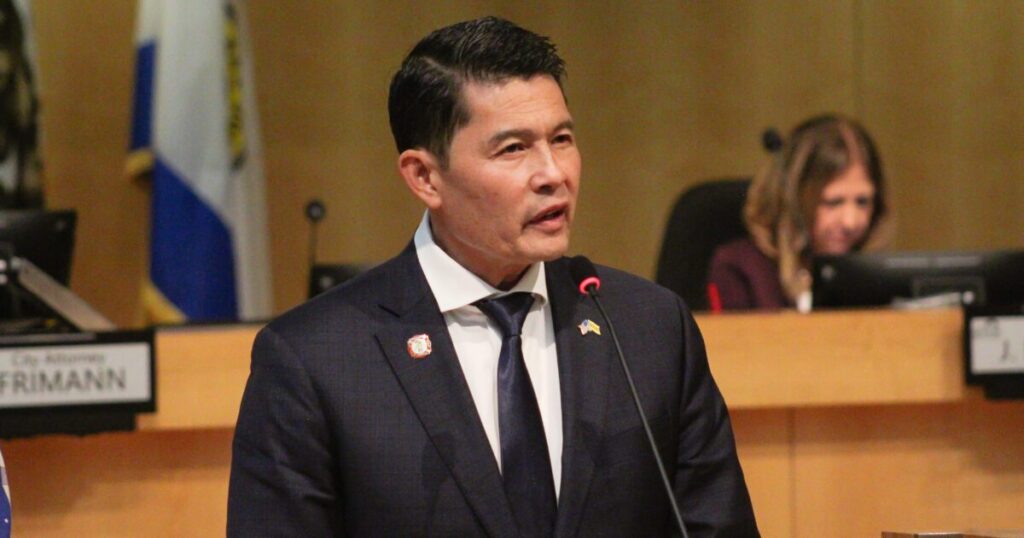San Jose leaders are updating the city’s social media policy to ensure elected officials relinquish their online communication channels once their term ends.
City officials began drafting the “Transition of Elected Officials” policy after San José Spotlight reported in 2023 that former Councilmember Maya Esparza refused to turn over social media pages affiliated with District 7. Her successor Councilmember Bien Doan described it as a “revengeful” act. Under the new policy unanimously approved Tuesday by the City Council, all outgoing elected San Jose officials will transition their city-affiliated social media accounts to the city clerk five days before leaving office.
The policy is set to be implemented at the end of the year, though there are no plans to penalize outgoing councilmembers for failing to follow it.
“Part of why we’re here — and I won’t give any specific examples — is we have at times in the past had some trouble with transition of city assets that should be maintained within the public domain,” Mayor Matt Mahan said at the meeting. “We’ve tried to draw the line here to create both continuity and clarity and protect public assets, but also respect the unique nature social media represents as a personal identity.”
Doan said he brought forward the proposed policy because of the trouble he encountered with Esparza. It showed there was a lack of process in transitioning online accounts.
“I was unable to access (constituent relationship management software), social media and so many additional hurdles that would have been addressed by a policy such as this,” Doan said. “This is a common sense framework designed to guide the transition process between outgoing and incoming elected officials.”
As a result of Esparza not handing over social media pages and online resources, City Clerk Toni Taber needed to retrieve her login information directly from the private company hosting the online resources. The IT department also retrieved all of her accounts tied to city emails.
“Part of the discussion has to be how do (these new policies) get enforced,” Taber previously told San José Spotlight. “The transition (of councilmembers) usually goes pretty okay, but every once in a while you get a couple that just don’t communicate.”
Vice Mayor Pam Foley asked why the policy is set to be implemented at the end of the year instead of when individual councilmembers term out or lose reelection. Chief Information Officer Khaled Tawfik said the city is sticking to the original 2025 timeline rather than next year so staff aren’t rushing to develop the transition process during an election year.
“If we mandate this during the transition, it might be too late,” Tawfik said. “So that’s why we’ll try to do it in December. So by the next election, which is November 2026, we will have enough time to migrate that information.”
Foley wasn’t satisfied with the answer.
“This is a complicated matter, and it’s giving our staff, frankly, heartburn over the whole issue on social media, the websites, everything,” Foley said.
Councilmembers Rosemary Kamei and Domingo Candelas proposed city employees create a social media training program for elected officials as part of the policy. By 2029, all local government officials must also use “.gov” for their websites thanks to a new state law known as Assembly Bill 1637.
By 2029, all local government officials must also use “.gov” for their websites thanks to a new state law known as Assembly Bill 1637.
“At the end of the day, it is a responsible, proactive measure that we want to ensure that taxpayer dollars are used appropriately, and that there is a differentiation between official, city, business, personal and campaign,” Kamei said.
Contact Vicente Vera at [email protected] or follow @VicenteJVera on X.


